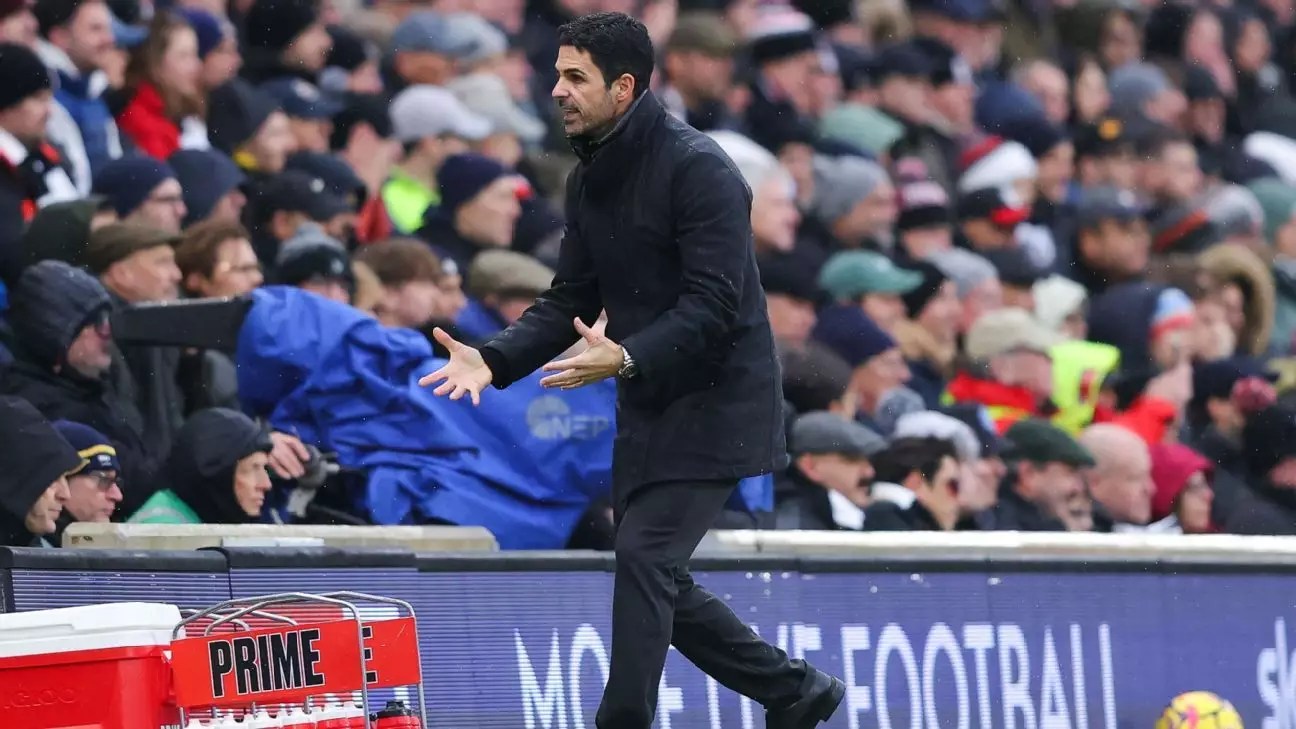After a hard-fought battle against Fulham at Craven Cottage, Arsenal’s manager Mikel Arteta expressed his disappointment over a draw that many fans and analysts believed should have turned into a victory. The Gunners displayed a commanding performance, controlling 70% of the possession and generating numerous opportunities, yet they could not clinch the win. Arteta’s feelings of being “gutted” reflect not only the match’s outcome but also the frustration that comes from knowing his team executed a strategy that typically leads to success. The fact that Fulham managed to glean a point from this encounter adds salt to the wound, particularly for a team that has struggled against them in recent meetings.
The game’s turning point came in the second half when defender William Saliba scored from a well-executed set-piece. This moment demonstrated Arsenal’s flair for capitalizing on set-piece situations, a crucial aspect of modern football that can often swing the momentum of a game. While Raúl Jiménez had opened the scoring for Fulham in the first half, Saliba’s equalizer provided Arsenal with the lifeline they desperately needed. Arteta’s acknowledgment of the quality displayed by both sides highlights a sense of respect for the opponent while simultaneously emphasizing the missed opportunity for his own team.
Adding to the drama of the match, young star Bukayo Saka had a goal disallowed for offside after a closer examination by the VAR. This late-game incident raised eyebrows, as it appeared that the Gunners had not just fought back but had taken control heading into the final minutes. Arteta’s post-match remarks about being just millimeters away from victory bring to light the razor-thin margins that can define a season. The phrase “if you don’t score three, four, or five” encapsulates the hunger that Arteta has for his team to sharpen their finishing—an expectation that is essential for a club of Arsenal’s stature.
Questions about Arsenal’s defense have circled, particularly after conceding an early goal. With key player Gabriel Magalhães sidelined, Arteta was forced to adapt, bringing in Jakub Kiwior to bolster the defensive line. His praise for Kiwior indicates that despite the setback, the manager is confident in the resilience of his squad. Furthermore, Arteta’s defensive philosophy is rooted in adaptability; he stresses the importance of recognizing the strength of the opposition while also holding his players accountable for their role in both attack and defense.
The draw leaves Arsenal firmly in third place, trailing Chelsea and league leaders Liverpool. While the immediate aftermath presents a mix of disappointment and validation, Arteta must focus on the broader objectives this season. Consistency is key, particularly with a packed fixture list ahead. As the team navigates through injuries and tactical shifts, their ability to adapt and maintain a winning mindset will ultimately define their season.
While Arsenal may walk away from Craven Cottage feeling like they left points on the table, the lessons learned and the resilience shown could fortify their resolve as they aim for a more successful outcome in future fixtures.


Leave a Reply